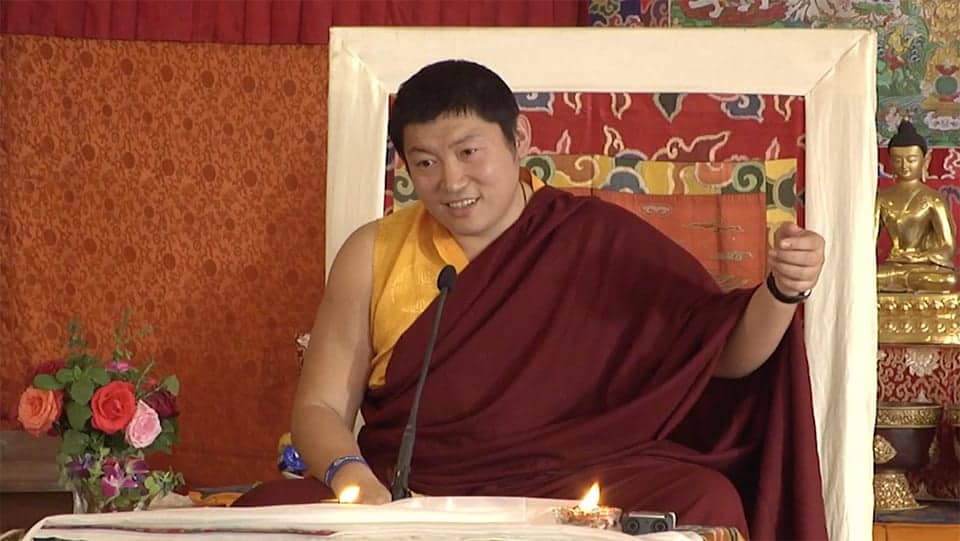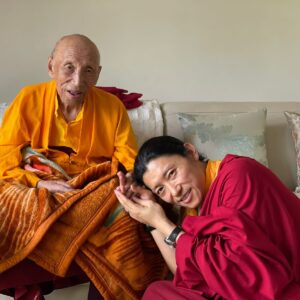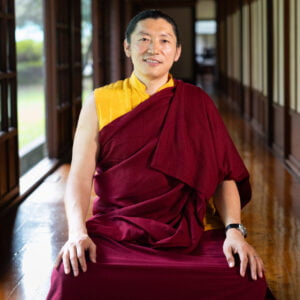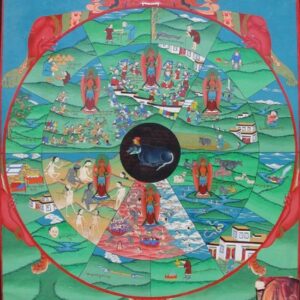Real kindness drops any agenda. And cultivating agenda-free kindness makes our daily actions really meaningful. In this audio excerpt, Phakchok Rinpoche requests that we refocus our efforts on just being kind. He introduces a new way for us to think about kindness.
Real Kindness without an Agenda: Not Ego-based Kindness
Real kindness is not about you and how you benefit. Instead, real kindness is about the other person.
Real kindness means that you aren’t looking for praise or thanks. We don’t attach strings to that kindness–we act kindly without expectation. Agenda-free kindness doesn’t look for something in return. And, on a spiritual level, this pure kindness doesn’t include calculations of how this will bring about enlightenment or accumulate merit for oneself. We need to let all that go. Instead, we can approach kindness very simply.
Think, “I just want to be kind”. That in itself is very pure motivation. Start small by being kind to people close to you. And don’t just assume you already do that–make an effort to show your dear ones how much you value them.
Expanding kindness
Gradually, as we develop our kindness muscles, we can expand outwards. We can do this individually, or together with our dharma friends. We can come together, as the Malaysian sangha recently demonstrated, to practice kind gestures such as generosity.
Eventually, we can sincerely speak of kindness “wherever space pervades” and we extend our actions accordingly. But, this is a gradual process, and we do need to proceed slowly.
Rinpoche observes that in his experience, he finds being kind is a very difficult practice. Honestly speaking, he finds it more difficult to practice than meditation. Why would he say that? Because, when we meditate, we give our minds a break. First, we let our minds focus on a virtuous or neutral object. Then, we tell our mind to just sit and not focus – to let go. And we may think, “Everything is emptiness”. Right? That can be very easy!
However, when we practice kindness we don’t give ourselves a break. So, as often happens, when we meet someone we don’t like, we experience difficulties. Our peaceful meditative and kind minds seem to vanish. At that time, if we keep trying to meditate, we often can’t. Why?
Because we are face to face with someone we have problems with and we need to interact with her or him. Our calmness and openness often shut down at this stage. Or people may flatter us and we begin to feel suspicious. And in those situations, we have lost our kindness. Yet when we lose our kindness, then our entire practice is damaged. Rinpoche says that if our minds are not kind, our practice is not worthwhile.
Blind Kindness: The Practice of the Bodhisattvas
Real kindness comes easier when we are blind. Blind in this sense means non-judgmental. When we start over-thinking, kindness cannot arise because our conceptual mind has already taken over. And when we add lots of concepts, our kindness disappears. Blind love can be better than smart love!
Blind kindness is a little better sometimes– although sometimes we need to pause and consider the situation–think a bit about it. Rinpoche here is not suggesting we behave foolishly out of kindness. However, he points out that our usual pattern is to overthink.
We often talk about the mind, but sometimes we forget the heart. The Buddha didn’t forget to practice kindness, but we often forget. So, just be kind! And if we are kind, then we can become a real bodhisattva. Bodhisattvas practice this blind compassion without expectation for results. Their only objective is to be kind throughout their practice. And this attitude, Rinpoche explains, shows the true value of the Buddha’s teachings. But, we must understand that this is easy to say, but difficult to do.
Exercising Kindness
Kindness is like any other habit; regular practice makes it stick! Thus, in the next month or so, let’s make it a priority until it starts to flow naturally. We can find so many ways to show kindness in our daily life–all we have to do is notice the opportunity and embrace it! So, in the morning, as you wake, think to yourself, “Kindness, kindness”.
And as you begin interacting with people, notice that it takes very little effort to smile, or to ask a kind question and really listen. What happens when you meet someone’s eyes and say “Thank you” for some small thing–like getting your coffee, or a seat on the metro? And notice how people relax and respond to kindness.
You may want to keep a journal to record your impressions. What small kindnesses have you extended recently? How do you feel when people don’t respond–can you keep on being kind?











Responses
great teachings Rinpoche! Thank you!